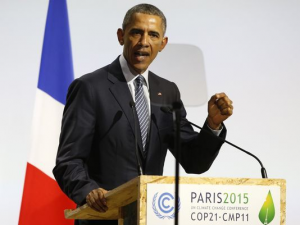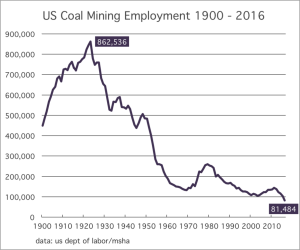When Ben Franklin was asked what system of government the Constitutional Convention had produced, he said, “A Republic, if you can keep it.” He knew how strong leaders can abuse power, and he knew how easily people can forget that lesson. This week’s agitation over America’s withdrawal from the Paris climate agreement clearly demonstrates both.
Critics throughout Europe and America pretend to be shocked at President Trump’s action, but it was no surprise. He openly campaigned on the fact that the Paris Accord was a bad deal for Americans. It was one of the reasons he was elected.
 More to Ben Franklin’s point, though, America never agreed to the Paris deal, only Barack Obama. He was our leader, but Americans do not believe in the “divine right of kings,” as medieval monarchs put it. We live in a democratic republic. When Presidents make deals with other countries, they are called treaties and require confirmation by 2/3 of the Senate. When Presidents want to spend public funds for anything, the money must be appropriated by Congress.
More to Ben Franklin’s point, though, America never agreed to the Paris deal, only Barack Obama. He was our leader, but Americans do not believe in the “divine right of kings,” as medieval monarchs put it. We live in a democratic republic. When Presidents make deals with other countries, they are called treaties and require confirmation by 2/3 of the Senate. When Presidents want to spend public funds for anything, the money must be appropriated by Congress.
Congress never authorized the $3 billion Obama committed to the “Green Climate Fund,” nor the regulatory scheme he considered as strong as a treaty, nor any other part of the Paris deal. Obama never even asked. He knew Congress would not sacrifice our economy for a political agenda, especially for no environmental gain – researchers at MIT say if even every nation met its Paris commitments, global temperature increases might drop 0.2 degrees by the end of the century.
Though touted as a great victory at the time, the Paris deal was, in fact, one of President Obama’s most stunning defeats. His real goal was a binding agreement that would “lock in” some of the most onerous new federal regulations: expensive fuel efficiency mandates for vehicles, energy efficiency requirements for offices and houses, new methane regulations, and the centerpiece, the “Clean Power Plan” to kill the use of coal (our cheapest and most abundant energy source).
Obama’s idea was that by committing the U.S. to international binding agreements, such regulations would become the only way to comply, and thus impossible for future Administrations to roll back. With the force of a treaty, such international agreements would supersede laws or executive orders of future Congresses or Presidents. Constitutional or not, it was a clever plan for one President’s agenda to outlast his tenure. But something went wrong in Paris – the utter inability of the West’s top leaders to convince all the other countries to agree to such a thing.
In the end, negotiators had to remove from the accord nearly everything that remotely resembled “binding,” replaced with a series of voluntary agreements. Even the very European countries now criticizing President Trump were not willing to bind themselves to emission reduction targets that they have found impossible to meet. China was not willing to bind itself to future payments into the climate fund, but instead demanded to continue increasing its own emissions at least until 2030. Several other vital pieces of Obama’s plan similarly fell apart.
What was left was Obama’s personal commitment that the U.S. would pay $3 Billion into the fund, frontloading costs on the American people to the detriment of their economy. Hence the U.S., one of 196 countries present, would pay over a third of the entire cost – transferring wealth to countries far less committed to environmental stewardship than Americans have been for generations.
 As President Trump points out, the U.S. already leads the world in energy production – and greenhouse gas reductions. Continuing that progress does not require a bad deal that will harm American workers. One study shows that the Paris “agreement” could cost America’s economy nearly $3 trillion over several decades. By 2040, 6.5 million industrial sector jobs could be lost, along with the final demise of America’s coal industry. Heritage Foundation economists estimate that average electric bills would increase 13-20 percent, hitting poor and minority families hardest.
As President Trump points out, the U.S. already leads the world in energy production – and greenhouse gas reductions. Continuing that progress does not require a bad deal that will harm American workers. One study shows that the Paris “agreement” could cost America’s economy nearly $3 trillion over several decades. By 2040, 6.5 million industrial sector jobs could be lost, along with the final demise of America’s coal industry. Heritage Foundation economists estimate that average electric bills would increase 13-20 percent, hitting poor and minority families hardest.
That impact would be especially tough in America’s coal-producing regions. In my home State of Colorado, coal still produces 2/3 of the State’s electricity, employs nearly 2,000 people, pays $86 million in royalties, and $28 million in taxes. That industry is being strangled; that’s why the new Administration is working to scale back the regulations responsible, as promised.
Withdrawing from the Paris deal – ending the charade that Americans had somehow committed to something their representatives were never even asked to vote on – is an important start in returning to the form of government our founders risked their lives, fortunes, and sacred honor to create.
A version of this column appeared in the Denver Post June 7 and the Grand Junction Daily Sentinel June 9, 2017.




Comments on this entry are closed.